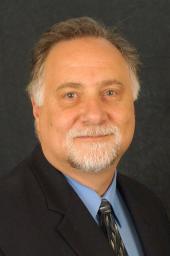Daniel H. Mathalon, PhD, MD, professor of psychiatry and biomedical sciences at UC San Francisco and co-director of the Brain Imaging and EEG Laboratory, has joined the Brain & Behavior Research Foundation (BBRF)'s Scientific Council. The council reviews and selects scientific research that will be funded by the foundation, which since 1987 has awarded more than $360 million in grants to more than 4,000 scientists worldwide.
The BBRF Scientific Council reviews and selects the most promising research ideas with the greatest potential to lead to breakthroughs. The council is composed of 173 world-renowned scientists including two Nobel Prize winners, four former directors of the National Institute of Mental Health, four recipients of the National Medal of Science, 13 members of the National Academy of Sciences, 26 chairs of psychiatric departments, and 55 members of the National Academy of Medicine. Mathalon will become the ninth UCSF Psychiatry faculty member on the council, joining colleagues Samuel H. Barondes, MD; William F. Byerley, MD; Judith M. Ford, PhD; John L.R. Rubenstein, MD, PhD; Matthew W. State, MD, PhD; Laurence H. Tecott, MD, PhD; Susan Voglmaier, MD, PhD; and Mark von Zastrow, MD, PhD.
Mathalon’s research examines the brain abnormalities that underlie the symptoms and course of psychopathology, particularly schizophrenia. He uses MRI and ERP to track the biological course of schizophrenia, addressing whether its pathophysiology is progressive over the illness course. He also uses ERP and functional MRI (fMRI) to study temporal and anatomical organization of functional brain activity underlying sensory, perceptual, and cognitive processes and their dysfunction in psychiatric disorders.
He received his BA from UC Berkeley and his PhD in Clinical Psychology from Indiana University. While at Indiana University, Mathalon was awarded the university’s Edwards Fellowship in recognition of his potential to contribute to the good of society through his work. He completed medical school and his psychiatric residency at Stanford University, where he began neuroimaging research in the laboratory of Adolf Pfefferbaum, MD, and developed statistical models to control for the effects of normal aging and head size on brain measurements. After completing his residency, Mathalon became a research scientist at SRI International in Menlo Park, CA.
In 2000, Mathalon joined the faculty of Yale University School of Medicine and established his Clinical and Cognitive Neuroscience laboratory. While at Yale, he taught extensively, supervising psychiatry residents, mentoring research, and lecturing and teaching courses in the medical school. He continued his clinical work as an attending psychiatrist at the VA Connecticut Healthcare System. In 2003, he was given the Early Career Contribution Award from EEG and Clinical Neuroscience. Mathalon received the Senior Scientist Award in 2003 and 2006 from the Biennial Winter Workshop on Schizophrenia, and the Kempf Award for Schizophrenia Research from the American Psychiatric Association in 2005.
In 2007, Mathalon moved his collaboration with Judith M. Ford, PhD, to San Francisco, establishing the Brain Imaging and EEG Laboratory at UCSF. He continues his clinical work as an attending psychiatrist at the San Francisco VA Medical Center and conducts research in association with the Northern California Institute for Research and Education (NCIRE).
About the Brain & Behavior Research Foundation
The Brain & Behavior Research Foundation is committed to alleviating the suffering caused by mental illness by awarding grants to scientists and researchers that will in turn lead to advances and breakthroughs in scientific research. Funded through private contributions; the foundation invests 100% of donor contributions for research directly into its NARSAD Grants. For more information, visit www.bbrfoundation.org.
About UCSF Psychiatry
The UCSF Department of Psychiatry and the Langley Porter Psychiatric Institute are among the nation's foremost resources in the fields of child, adolescent, adult, and geriatric mental health. Together they constitute one of the largest departments in the UCSF School of Medicine and the UCSF Weill Institute for Neurosciences, with a mission focused on research (basic, translational, clinical), teaching, patient care, and public service.
UCSF Psychiatry conducts its clinical, educational, and research efforts at a variety of locations in Northern California, including UCSF campuses at Parnassus Heights, Mission Bay, and Laurel Heights, the UCSF Medical Center at Mt. Zion, Zuckerberg San Francisco General Hospital and Trauma Center, the San Francisco VA Health Care System, and UCSF Fresno.
About the UCSF Weill Institute for Neurosciences
The UCSF Weill Institute for Neurosciences, established by the extraordinary generosity of Joan and Sanford I. "Sandy" Weill, brings together world-class researchers with top-ranked physicians to solve some of the most complex challenges in the human brain.
The UCSF Weill Institute leverages UCSF’s unrivaled bench-to-bedside excellence in the neurosciences. It unites three UCSF departments—Neurology, Psychiatry, and Neurological Surgery—that are highly esteemed for both patient care and research, as well as the Neuroscience Graduate Program, a cross-disciplinary alliance of nearly 100 UCSF faculty members from 15 basic-science departments, as well as the UCSF Institute for Neurodegenerative Diseases, a multidisciplinary research center focused on finding effective treatments for Alzheimer’s disease, frontotemporal dementia, Parkinson’s disease, and other neurodegenerative disorders.
About UCSF
UC San Francisco (UCSF) is a leading university dedicated to promoting health worldwide through advanced biomedical research, graduate-level education in the life sciences and health professions, and excellence in patient care. It includes top-ranked graduate schools of dentistry, medicine, nursing and pharmacy; a graduate division with nationally renowned programs in basic, biomedical, translational and population sciences; and a preeminent biomedical research enterprise. It also includes UCSF Health, which comprises two top-ranked hospitals, UCSF Medical Center and UCSF Benioff Children’s Hospital San Francisco, and other partner and affiliated hospitals and healthcare providers throughout the Bay Area.








